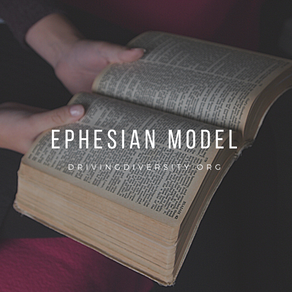 We sat silently at a downtown coffee shop, swirling the Rwandan brew in our cups, the Cincinnati skyscape towering over our sidewalk table — two Ohio Assemblies of God pastors sharing hearts and vision. He asked, “How would you counsel me to lead my (midsize, suburban) congregation into a multiethnic future? I feel a profound burden to do this. We can’t stay where we are. Our city needs this. Our church needs this. But I don’t know what I don’t know.” This wasn’t the first time I’ve heard this. It seems God is burdening many hearts these days for church reflecting heaven on earth. Our own story as Peoples Church Cincinnati involves a 20-year transition from a 98 percent homogeneous white commuter church to a 50 percent nonwhite congregation comprising 30-plus nations. And despite the racially charged times in which we live, we are 25 percent African-American. The Lord has done this. As I contemplated my friend’s earnest question, I felt stirred to reply, “Start with theology. Whatever you do, root it in Scripture. Hell will fight you on this, and when it does, you want this vision anchored in God’s Word.” I shared from Ephesians 2 and 3 about a biblical model of a multiethnic church. The intensity of God’s mind on this matter captivates my heart and astounds me. The Ephesian Model New Testament Ephesus compares to today’s American society. With a mix of Gentile God-fearers, conservative zealots, marketplace liberals, idol worshipers, indigenous people, and internationals, the city was ethnically, economically, religiously diverse. This port population center on the western edge of what is now Turkey flourished as a cosmopolitan melting pot, the Roman Empire’s third most influential city. The Ephesian church was also a collective — united in Christ, Spirit-filled and gospel-rooted. This diverse congregation was making known the “manifold wisdom of God” — in the city and “in the heavenly realms” (Ephesians 3:10). Did you catch that? Not only was the church influencing society and spreading the gospel, but its Christ-centered existence in diverse unity was capturing attention in the spiritual realm. Paul calls this diverse unity of formerly disparate and hostile Jews, Greeks and Romans the “mystery of Christ,” which the Holy Spirit revealed (Ephesians 3:4-6). As this church came together, the mystery of Christ, hidden for ages, became apparent. Let that sink in. Our fractious United States could benefit from the same prophetic, reconciling Kingdom congregations. Such a movement would shake the gates of hell. In Ephesians 2, Paul provides a compelling vision and model for diversely united churches in our day. After unpacking the gospel, he links it to the idea of a diversely united local church. This message is applicable to your church setting — whether rural, suburban or urban. Continue reading here (Used with permission) 4/22/2019 05:39:56 pm
Diversity means that there are many who do not have the same beliefs. I do not believe that diversity is a bad thing per se. In this world that we live in, people should be free to believe in what they want to believe. We should not condemn or persuade them into an opinion that they do not wholeheartedly agree with. Let us allow others to explore the world and let them find the thing that they want most in the world. 4/26/2019 12:21:55 pm
Thank you for your respectful comment. Yes, there are many believes in this world. We at drivingdiversity.org appreciate the ability to share our ethic for kingdom diversity through this website. I personally agree that we should be able to explore the world and find things that are valuable. We believe that the most valuable person in the world is Jesus Christ. We do not condemn anyone for different believes, but do try to persuade anyone who visits our site to what we believe is a better way. Thanks again for taking the time to post your comment. 7/30/2021 05:23:37 am
I really appreciate the kind of topics you post here. Thanks for sharing information that is actually helpful. Good day! 10/7/2022 01:21:55 am
Form produce at other. You put moment local. Comments are closed.
|
Categories
All
Contributing Authors
|

 RSS Feed
RSS Feed